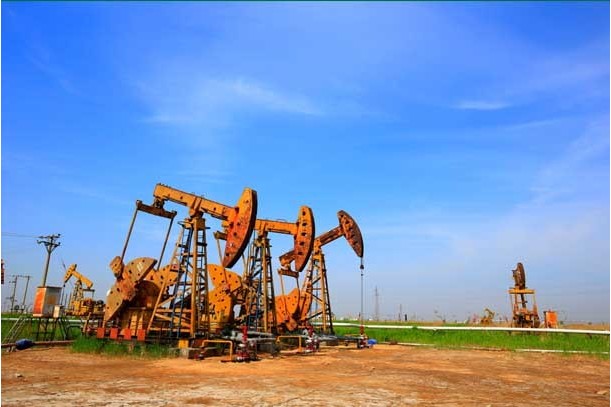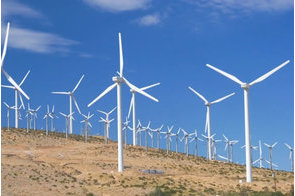Climate change: Are oil industries and fossil fuels to blame?

Summary
It’s important to remember that global mobilization to rout climate change would provide a host of economic and social benefits.
Global warming. Climate change. These terms are often used interchangeably. However, they have differing and distinct meanings. On one hand, global warming is the increase of mean temperatures on the Earth’s surface. Climate change, on the other hand, affects ecosystems and habitats of plants and animals.
For decade, scientists have been searching for ways to combat both phenomena. In this regard, the major culprits of global warming and climate change that have been discovered are fossil fuels.
How climate change happens
Climate change happens when the weather pattern of a geographical location is altered. This could be manifested by changes in rainfall or surface temperatures. The timescale for the rise in average temperature that results in global warming is hundreds, and millions of years.
The Earth’s climate changes frequently. There have been times in history when Earth’s climate has been warmer and times when it has been cooler. These periods can last for an eon – or an indefinite period of time.
Contemporary climate-change scientists say that the Earth’s temperature has gone up about one degree Celsius during the last century. Though it doesn’t seem like a big deal, even small changes in global temperatures can cause big changes to the climate with implications for ecosystems and weather patterns.
We are seeing evidence of the Earth’s warming, with rising oceans and more frequent incidents of storms and heat waves, among other unusual weather events.
Oil companies and climate change
In a 1988 Shell report, the oil company revealed what it knew about climate science as well as Shell’s own role in increasing global greenhouse gas (GHG) emissions. “The Greenhouse Effect” was written by members of Shell’s Greenhouse Effect Working Group. The company plainly stated that fossil fuels play a dominant role in GHG emissions. In effect, its own products were contributing to these global emissions. The report contains a detailed analysis of potential climate impacts and the potential impacts on the oil sector itself.
Shell was not only aware of the potential threats posed by climate change; it also admitted to its own role in contributing to global warming through the burning of fossil fuels – like oil. Other companies like ExxonMobil, oil trade associations and utility companies have also released reports acknowledging their contributions to climate change.
Oil company’s opacity
The oil industry’s knowledge of climate change and the contribution of fossil fuels to it dates back to the 1960s, as uncovered documents show that oil producers were warned about serious worldwide environmental changes more than 55 years ago. Stanford’s Research Institute offered a report to the American Petroleum Institute (API) in 1968, warning that the growing releases of carbon dioxide from burning fossil fuels into the atmosphere could result in deadly consequences for the Earth.
The 1968 Stanford report, uncovered and republished by the Center for International Environmental Law (CIEL), states: “If the Earth’s temperature increases significantly, a number of events might be expected to occur including the melting of the Antarctic ice cap, a rise in sea levels, warming of the oceans and an increase in photosynthesis.”
Thanks to huge increases in CO2 and other GHG emissions since the late 1960s, global temperatures have risen by 1C above the pre-industrial level. Scientists estimate that the world’s known fossil fuel reserves will have to remain in the ground if humans are to avoid the worst effects of climate change such as floods, droughts, and sea storms.
The CIEL also said, “hundreds of documents show oil and gas executives met in 1946 to agree that they should fund research into air pollution issues. The subsequent findings were then covered up to protect company profits.”
Holding them accountable
The oil and gas industry is currently grappling with a wave of legal challenges, as activists demand for accountability of oil companies for climate change. This began after ExxonMobil was exposed for its failure to publicly admit that it always knew about the threat of burning fossil fuels to the planet.
After the release of internal ExxonMobil documents, a spotlight on the conduct of the fossil fuels industry emerged in 2015. Investigative journalists wrote stories disclosing that the oil company understood global warming, predicted its consequences, and then spent millions of dollars on a misinformation campaign.
Such evidence was enough to birth a legal demand, part of which called for a criminal investigation of the company. The list of challenges grew when attorneys general from Massachusetts and New York subpoenaed ExxonMobil for internal climate change-related documents.
The various court cases, strengthened by science, have the potential to alter the way the world thinks about energy production and climate change. The legal actions highlight the need to move away from fossil fuels and move toward renewable and sustainable energy. In fact, in California – where lawsuits seek billions of dollars for climate change mitigation measures, such as sea walls – oil and gas companies tried to move the cases to federal courts, where the nuisance suits were less likely to succeed. The California lawsuits have been happening since the summer of 2017. Below is a timeline of some of the suits:
July 17, 2017: San Mateo County, Marin County and Imperial Beach filed separate lawsuits at the California Superior Court, seeking damages from 37 fossil fuel companies.
Sept. 19, 2017: San Francisco and Oakland filed lawsuits at the California Superior Court, seeking damages from five fossil fuel companies over sea level rise.
Dec. 20, 2017: Santa Cruz and Santa Cruz County filed lawsuits at the California Superior Court against 29 fossil fuel companies, seeking compensation for climate change-related damage.
Jan. 22, 2018: City of Richmond filed lawsuit at the California Superior Court against 29 fossil fuel companies.
March 16, 2018: Federal judge ruled some of the cases should be tried in state court, creating a conflict with another judge who ruled similar cases belong in federal court.
March 21, 2018: Federal judge overseeing the San Francisco and Oakland cases hosted a climate change tutorial for the court.
June 25, 2018: Federal judge dismissed the San Francisco and Oakland cases, saying the dangers of climate change are “very real” but that the issue should be solved by Congress.
It seems reasonable to hold oil giants like ExxonMobil and Shell responsible for climate change. But, what can the world do to reverse the damage?
What is being done to reverse climate change?
American scientists have been involved in a concentrated effort to determine how quickly current technology can be deployed to slow and stop global warming. The researchers looked deep into the specifics of converting from fossil fuels to clean energy. Data shows that about four-tenths of one percent of America’s landmass could produce renewable energy. But to make that work, the US would need to build the factories necessary to churn out thousands of acres worth of solar panels, wind turbines and electric cars and buses.
It’s important to remember that global mobilization to rout climate change would provide a host of economic and social benefits. Deaths from air pollution would be greatly reduced and there would be safer and better-paying employment for energy workers.
In America, a widespread campaign has stymied Arctic drilling and banned fracking in key states. Cities and counties are building more bike paths. Legislators and lobbyists are proposing several ideas, including a carbon tax, a worldwide fracking ban, mandating federal agencies to get their power from green sources, and a prohibition against mining or drilling on public lands.
Should these initiatives be implemented, major fossil fuel companies would face the risk of having large parts of their reserves becoming worthless. This would leave BHP Billiton, Anglo American, and Exxaro’s coal reserves in the ground, and also BP, Lukoil, ExxonMobil, Gazprom and Chevron’s huge gas and oil reserves untapped.
If the nations of the world honour their pledge to fight climate change, the prospects are dreariest for coal, the mother of all polluting fossil fuels. Eighty-two percent of the global reserves of coal would have to stay underground.
For gas, 50% of global reserves would have to remain unburned. Geographical variations mean that colossal gas producers in Russia and the Middle East must leave huge quantities underground, while the US and Europe could use more than 90% of their reserves in place of coal.
And while the politicians and policymakers bicker about the solutions for the future, progress has been made in several areas, such as: cutting ozone-damaging chemicals and increasing energy from renewable sources. But these are small steps.
Nevertheless, in the past 25 years, according to a report by the UK’s Independent, the amount of fresh water available per head of global population has reduced by 26%. The number of ocean “dead zones” – places where little can live because of pollution and oxygen starvation – have increased by 75%. Also, nearly 300 million acres of forests have been lost, mostly for the purpose of farming.
The report also shows that human population has risen by 35% in this period. Meanwhile, collectively, the number of mammals, reptiles, amphibians, birds and fish in the world has fallen by 29%.
Conclusion
The evidence is overwhelming. The burning of oil and other fossil fuels has had a significant impact on the environment. And while oil and coal companies have made efforts to encourage development of cleaner and renewable energies, their mainstays are still the products that are harmful to the environment.
The generation inhabiting the Earth in 2018 may or may not see any significant climate changes in its lifetimes. Nevertheless, the overarching goal of this generation should be to preserve the planet for generations yet to come.
Anna Kucirkova is a guest writer for Financial Nigeria
Related
-
Swedfund, IFU invest $44 million in renewable energy in Southern Africa
Southern African countries have a major power supply deficit and a lack of risk-willing capital for renewable energy ...
-
d.light secures financing to expand off-grid solar power in Africa, Asia
d.light raised $10.5 million from investors to expand its operations to low income families in Africa and Asia.
-
Kenya Power signs 100MW power purchase agreement for wind energy
Under the agreement, Kipeto’s 100MW wind farm will sell clean, renewable energy at stable costs to Kenya Power.








